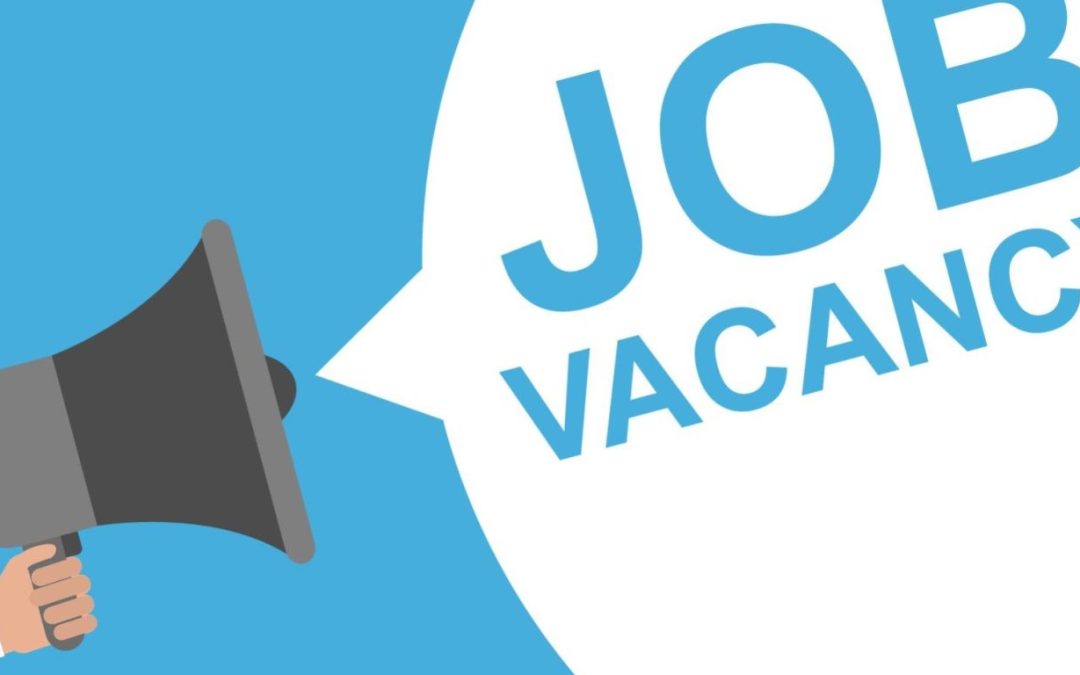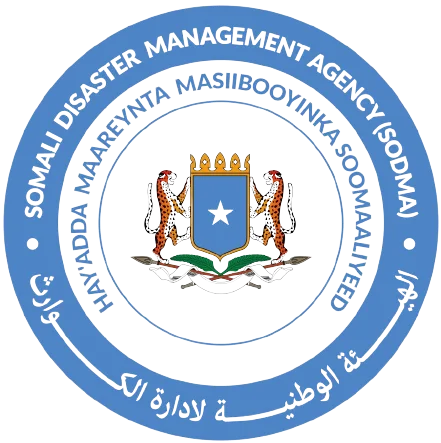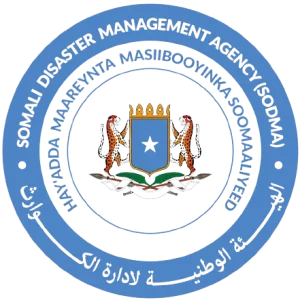INTRODUCTION
Somalia’s hazard profile is dominated by droughts, floods, cyclones, strong winds, diseases (epidemic/pandemic), terrorism, desert locust and armed conflicts, that disrupt people’s livelihoods, destroy the infrastructure, divert planned use of resources, interrupt economic activities and retard development.
Increasingly, it is recognized that hazards are linked. The impacts of many types of natural hazards do not occur in isolation, but recognition of such cause and effect on a national scale led to the creation of a National Multi-Hazard Early Warning Center in Somalia for the first time that can accommodate multiple hazards and lessen their impacts. At the same time, the government is becoming aware that a paradigm shift from crisis management to risk management is utmost necessary if the finite resources available are spent in the most efficient way to assist the populations at risk to prevent or mitigate impact of disasters.
In the pursuit of getting effective and timely warning against such hazards causing disasters, it was necessary to establish a National Center that provides early warning information of possible risks posed by hazards, based on this, and In order to reduce the risk of disasters and save lives and properties, the Federal Government of Somalia has assigned the Somali Disaster Management Agency to realize the aspiration of establishing and operationalize a National Multi-hazard Early Warning Center (NMHEWC).
In cognizant of the above, an institutional Framework for Multi-Hazard Early Warning will provide a strategic guidance that paves the way for a comprehensive institutional framework to Early Warning and Early Action into disaster Risk management (DRM) programming and will strengthen national capacities for Early Warning in the disaster prevention, preparedness, and mitigation stages.
The Somali Disaster Management Agency is seeking potential consultancy firm to carry out the development of a National Multi-Hazard Early Warning Systems institutional framework for Somalia.
PURPOSE
The overall aim of this assignment is to develop anticipatory early warning system and framework for the Somali disaster management Agency by reviewing and consolidating the existing early warning mechanism, synchronize with National Multi-hazard Early Warning Center (NMHEWC) and ultimately produce a national multi-hazard early warning institutional framework, a paradigm shift from crisis management to risk management on a national scale. The consultant will develop a comprehensive multi-hazard early warning framework which is in line with the National Disaster Risk Reduction strategy, policy and regional frameworks.
- Requirements for an efficient National MHEWS, legal and institutional arrangement, comprehensive assessment of the current and future risks of multiple hazards, such as floods, droughts, and conflict.
- A set of multi-hazard scenarios and simulations to test the effectiveness and robustness of the existing early warning systems (EWS) and disaster risk reduction (DRR) measures, and to identify the gaps and challenges for improvement.
- A multi-hazard early warning and early action system (MHEWAS) that integrates data, information, and knowledge from various sources and sectors, and provides timely and accurate warnings and advisories for different hazards and levels of risk.
- A multi-hazard early warning framework that defines the roles and responsibilities of various actors and stakeholders, and outlines the standard operating procedures, coordination mechanisms, and communication channels for prevention, preparedness, and mitigation actions.
- A multi-hazard capacity-building plan that identifies the training needs and opportunities for enhancing the skills and knowledge of the relevant personnel and institutions involved in MHEWAS and DRR.
- A multi-hazard knowledge management platform that facilitates the collection, analysis, dissemination, and exchange of data, information, and best practices on MHEWAS and DRR among various actors and stakeholders
- Mapping and reviewing of the current EWS practices, and consolidate existing early warning mechanism to leverage with National Multi-hazard Early Warning Center (NMHEWC).
- Substantiate the EWS framework with Operational guidelines with climate change adaptation lenses reflecting on the priorities and interventions outlined in the Somalia’s DRM Policy, DRR Strategy, and other Regional Frameworks.
- Assess the nature and complexity of EWS framework in fragile contexts; this can be SWOT/PESTLE analysis, examine limitations, risks, challenges and opportunities for EWS implementation.
- Explore and recommend how SoDMA can engage with all relevant stakeholders.
- Formulate easily adaptable operational protocols for forecast based financing Mechanism (early action, triggers for early action and financing implementation), to complement paradigm shift from crisis management to risk management on a national scale.
- Document gaps of various early warning aspects, Risk knowledge, risk monitoring, preparedness to respond and timely communicating about impending risk
- To find out how effective the early warning information reaches, understood or is used by vulnerable communities.
- To identify best practice on Early Warning information production and dissemination at the National Multi-Hazard Early Warning Center
- To assess and understand the underlying risk factor for vulnerability in the occurrences of disasters.
- To figure out the best way to improve Early Warning Staff capacity in disaster preparedness stage at all levels
- To provide concrete recommendations and suggest solutions for the most relevant Early Warning institutional framework for Somalia.
KEY RESPONSIBILITIES
Scope of Consultancy
This MHEWS institutional framework consultancy will be conducted in Somalia and will give adequate focus on climate induced disasters, floods, drought among others. The consultant firm will directly report to the Somali Disaster Management Agency in close coordination and consultation with MoWER, MoECC, MoAI amog others. The consultant will also consult with WFP, FAO, FEWS NET, IGAD/ICPAC AMHEWAS EWS, local governments and EWS/DRM related implementing partners in the country.
The consultant will produce EWS framework through;
- Mapping and reviewing the current EWS practices, and consolidate existing early warning mechanism to leverage with National Multi-hazard Early Warning Center (NMHEWS).
- Assess the nature and complexity of NMHEWS framework in fragile contexts; this can be SWOT/PESTLE analysis, examine limitations, risks, challenges and opportunities for EWS implementation.
- Substantiate the NMHEWS with Operational guidelines with climate change adaptation lenses reflecting on the priorities and interventions outlined in the Somalia’s DRR strategy, DRM Policy, and other Regional Frameworks.
- Development of National Multi-Hazard Early Warning Strategy (NMHEWS) framework-Weather and Climate Forecast system.
- Formulate easily adaptable operational protocols and SOPs for National Multi-Hazard Early Warning Strategy (NMHEWS) framework, (anticipatory early action, triggers for early action and financing implementation) to complement paradigm shift from crisis management to risk management on a national scale.
- Explore and recommend how SoDMA can engage with private sector in Forecast Based financing linking with NMHEWS.
- Document gaps of various early warning aspects, Risk knowledge, risk monitoring, preparedness to respond and timely communicating about impending risk
- To identify best practice on Early Warning information production and dissemination at the National Multi-Hazard Early Warning Center
- Organize a high-level meeting with the government and the donor working group to launch the NMHEWS Framework document after the final document is delivered
- Assisting SoDMA in translating the EWS Framework in Somali language
Methodology
The consultant is expected to develop a detailed assessment methodology based on their understanding of the term of reference. The final methods shall be agreed upon between the consultant and SoDMA. Additionally, the Consultant/consultancy firm is required to employ a mixed-method approach using a variety of data collection and analysis techniques for both quantitative and qualitative data in the assessment. The consultant should conduct a desk review of relevant early warning practice to provide insights from the context and lessons learnt from various organizations, aimed at incorporating learning’s from the experiences and to improve upon the sustainability of the activities. The NMHEWS consultant/consultancy firm is requested to use the Participatory Learning Approach Methods to collect information from the relevant stakeholders and encourage people to participate in the assessment process.
Authority and Responsibility
The consultant;
- Develop an inception report detailing the process and methodologies to be employed for this assignment. This includes a list of stakeholders participating in this assessment, interview schedules, and other important timelines for this assignment. Assessment tools and present to SoDMA for review and input before proceeding for data collection
- Undertake desk review of relevant documents
- Design data collection methodology according to the objectives and scope of consultancy whilst referring existing early warning system, SoDMA tools, DRR designs and other relevant government strategies.
- Liaise with SoDMA team for any technical guidance required throughout the process
- Conducting all data analysis and prepare draft report and take feedback for finalization
- Present draft report capturing key findings against the objectives of the assessment to SoDMA team for review before producing a second draft report.
- Present draft report (2nd draft report) to SoDMA in a consultation workshop to facilitate sharing of the assessment findings and proposed NMHEWS strategy with a view of incorporating inputs from stakeholders in the draft report.
- Produce final NMHEWS strategy and submit in both hardcopy and softcopy for validation.
- The Consultant/consultancy firm is expected to plan their work and create time to visit UN, NGO, Donors, relevant ministries and potential private sector actors at state and federal level during the data collection, before finally providing an analysis as preliminary findings to be discussed by all stakeholders in a validation workshop then developing a final strategy acceptable to SoDMA.
Inputs of the agency (SoDMA)
The Departments of Disaster Risk Management will provide:
- Provide the selected consultant with necessary documents to enable a clear reporting and understanding of the program
- Create linkage with UN, NGO, donors and other stakeholders to ensure effective accomplishment of the assignment.
- Review report and provide feedback to the consultant to ensure consistency with the organization implementation objectives.
- Liaise with the local implementing partners on behalf of the consultant to plan data collection.
- Provide necessary orientation and training to the consultant.
- Review and approve methodology to be used by the consultant.
- Review the draft report and provide feedback to the consultant.
- Strategic support for convening meetings;
- General oversight in the roll out of the consultancy
Key deliverables
The consultant is expected to carry out all the preparation required to roll out the consultancy in time;
- Inception Report with Work Plan;
- First Draft of the National Multi-Hazard Early Warning Institutional Framework.
- Second Draft of the National Multi-Hazard Early Warning Institutional Framework.
- Holding consultation and validation meetings. Produce workshop reports, exercises, significant events in the process, challenges, lessons learned;
- Debriefing at the end of the work is mandatory with relevant SoDMA and WFP staff, If possible, PowerPoint presentation of the draft document.
- Final draft of the National Multi-Hazard Early Warning Institutional Framework.
- Two hard copies of the final report
- Soft copy of the report
- The consultant is also required to submit to SoDMA all assessment materials including; soft copies of all data sets: both Quantitative and qualitative.
Expected output
-
- Comprehensive NMHEWS Institutional Framework.
- NMHEWS stakeholder’s mapping and analysis with categorization of potential stakeholder in each location.
- SWOT/PESTLE analysis report relevant to NMHEWS implementation in the context of Somalia
- NMHMEWS Implementation Plan, M&E plan, risk matrix and mitigation measures plan.
- Organize a high-level meeting with the government and the donor working group to launch the NMHEWS Institutional Framework document after the final document is delivered
- Assisting SoDMA in translating the EWS Framework in Somali language
POSITION SUMMARY
The selected consultant/firm will be required to employ a multi-disciplinary team (with Climate Change adaptation, disaster risk reduction, livelihoods, humanitarian, governance among other experience and expertise) to facilitate an in-depth analysis of the context. The consultant/s will possess the following minimum qualification and skills:
- Advanced Degree or equivalent in environmental policy, Climate Change, agriculture, Development Studies, or Business Management from a recognized University or relevant professional experience in related area will be accepted in lieu of degree in another field/s.
- Have genuine consultancy registration in the country where it is based at.
- Have conducted similar anticipatory early warning early action, climate change adaptation, strategy and policy development consultancy primarily in fragile context and pastoral, agro-pastoral and IDP/refugee livelihood setting.
- Proven track-record working with inter-governmental institutions, government departments and civil society counterparts over the formulation of strategies and policy, research/study documents relating to the subject.
- Good knowledge on Somalia state building processes, socio-economic, political dynamics, national strategies, national plans and relevant international frameworks.
- Have in-depth understanding on Climate Smart programming, environmental policy, sustainable livelihood framework, agricultural development.
- Excellent analytical and report writing skills with ability to meet deadlines and produce high-quality work under tight timeframes
- Ability to work jointly with teams and integrate feedback as required.
- In-depth knowledge of Somalia and its environs, and its government structures
- Excellent communication skills (in English languages)
EXPECTED PROFILE FOR THE CONSULTANCY FIRM
This assignment will require the engagement of a firm/company with institutional history and experience including disaster risk reduction and management skills, plan development, public relations/engagement and with a background in working in Somalia. Based on the above stated objectives, the scope will include.
- Familiarizing with the history, vision and mission, and recent work of SoDMA including undertaking consultations with relevant staff of the ministries, departments and agencies (MDAs) acquiring their technical support in the process of developing the institutional framework strategy document.
- Ability to understand and capture the current context and gaps, including mapping Early Warning stakeholders within and outside the government;
- Developing a content of the study document for inception and discuss it with SoDMA and other relevant stakeholders.
- Take stock of the National Policies relevant to the subject and make an assessment on their strengths, weaknesses, opportunities and threats.
- Identifying Gender responsive Early Warning activities, processes and decision making structure to recommend required changes to improve their effectiveness and evaluating key strategic objectives, operational approaches, and indicators for successful implementation of an implementable EW plan of action;
METHODOLOGY
The exercise will entail:
- Desk review of available literature and producing a draft inception report/zero draft for further consultations. The purpose of engagement is forward looking focusing on how things will be done differently and what needs to change to enable this.
- Organize a consultation meeting with key relevant stakeholders from local authorities. Also undertake informal and formal meetings and structured interviews tailored for specific individual stakeholders and teams
- Production, presentation and review of the strategy document and clearly identifying the short term and long terms needs in terms of Early Warning in Disaster Risk Management.
- Refining the draft incorporating feedback and comments from stakeholders.
- Submission of hard and electronic copies of the strategy document to the Somali Disaster Management Agency.
- Contract closure upon confirmation by the Agency that all requirements have been met by consultant firm.
DELIVERABLES
- Inception Report with Work Plan
- First Draft of the Study;
- Second Draft of the Study;
- Report of meetings, exercises, significant events in the process, challenges, lessons learned;
- Holding consultation and validation meetings
- Final draft of the study findings
INDICATIVE TIMEFRAME AND NUMBER OF DAYS
| # |
Activity |
# of days |
| 1 |
Inception Report with work implementation plan |
6 |
| 2 |
Desk Review |
10 |
| 3 |
First Draft of the Institutional Framework Document |
9 |
| 4 |
FGD/KIIs/Consultations with stakeholders and peer review group (Government, and Early Warning Stakeholders, etc) |
10 |
| 5 |
Second draft of the Framework document with the review team |
8 |
| 6 |
Presentation of the final draft (a validation workshop) and hand over the final draft |
2 |
|
Total days |
45 |
QUALIFICATIONS
- In-depth knowledge of Somalia and its environs, and its government structures
- Demonstrated experience in developing similar subject
- Excellent communication skills (both Somali and English languages)
- Knowledge of Somali government processes, national strategies, national plans and international frameworks. Knowledge and experience on the issue of state institutions relevancy to Early Warning and DRR.
- Proven track-record working with government departments and civil society counterparts over the formulation of previous research/study documents relating to the subject.
APPLICATION PROCESS
All applications should be sent to advisor.finance@Sodma.gov.so and copying drm@sodma.gov.so by the 25th August 2024.
A selection committee will review all applications as they arrive. All applicants must meet the minimum requirements described above, and those unable to meet these requirements will not be considered.
Each application package should include the following:
- An application letter addressing how the consultancy companies/firms previous experience matches the requirements for this position. The letter should be no longer than two pages;
- Updated profile for the consultancy company/firm including relevant work experience and qualifications;
- Contact details of at least 3 references.
*Applications not including all of the above information will not be reviewed.


